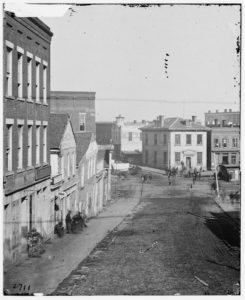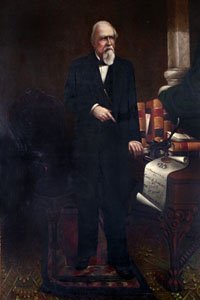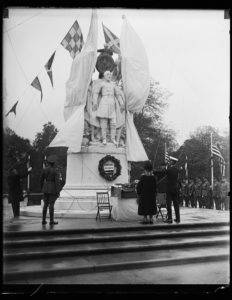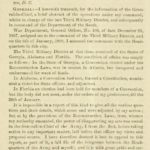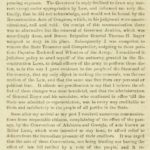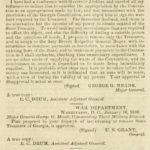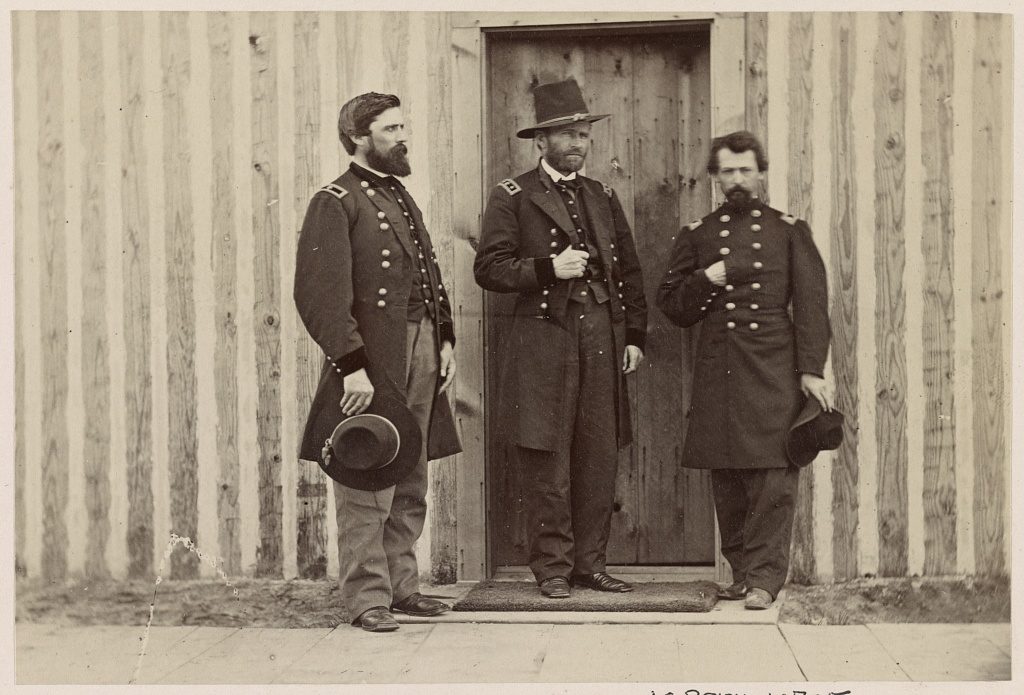In November 1867 the state of Georgia conducted an election to choose delegates for a convention that would rewrite the state constitution. The convention convened in early December 1867 in Atlanta; one of the first issues it faced was the lack of funding for its work. According to Paul Laurence Sanford’s 1947 thesis (pages 20-21), convention delegate Aaron Alpeoria Bradley criticized both General John Pope (commander of the Third military District) and Georgia Governor Charles J. Jenkins:
His speech resulted in a petition by the Convention to the Commander of the Third Military District for the appointment of a Provisional Governor who would favor the work of Reconstruction. The personal opinions and personal character of General Pope, combined with such interference as he did practice in civil matters, served to gain for him the dislike of the people and the rather unjust reputation of a petty tyrant. Resentment towards him in the Convention came from his failure to coerce Governor Jenkins to draw a sum of forty thousand dollars from the State Treasury in order to pay the delegates and support the Convention. Jenkins was of the opinion that the Convention, since required by Federal and not State law, should be supported with Federal funds; hence his refusal to honor the Convention’s request for money. Bradley said that Pope should compel Jenkins to grant the sum, but that the General was too weak-kneed to do his duty. The Negro delegates, who probably needed the money worse than the others, voted unanimously for the removal of Jenkins.
On December 28, 1867 President Andrew Johnson (through General-in-Chief and Acting Secretary of War Ulysses Grant) replaced General Pope with George Gordon Meade. General Meade took command on January 6, 1868. One of the first issues he confronted was the refusal of Governor Jenkins to fund the constitutional convention. General Meade quickly replaced Governor Jenkins with General Thomas H. Ruger. A northern editorial seemed quite sympathetic with the arguments Governor Jenkins used to oppose state funding. From The New-York Times January 21, 1868:
Gov. Jenkins and Gen. Meade.
We publish elsewhere the correspondence between Gen. MEADE and Gov. JENKINS, of Georgia, which resulted in the removal of the latter from office.
The removal was made because the Governor, in the General’s opinion, “failed to cooperate” with him in executing the Reconstruction laws of Congress; and the specific act in which this failure occurred was in his refusal to issue a warrant on the State Treasurer for the payment of the expenses of the Convention.
Gov. JENKINS, in his letter, gives at length and with great clearness his reasons for thus refusing. He says:
1. He holds office under the Constitution of the State of Georgia adopted in 1865, which he has sworn to support: – that Constitution forbids any payment of money except in the pursuance of law; – meaning, thereby, as the Governor holds, law emanating from the law-making power established by that Constitution. There is no such law authorizing payment of the expenses of the Convention. Nor is the Convention held in pursuance of any State law, but under a law of Congress. But Congress has no right to appropriate money from the Treasury of any State, or to authorize any other body to do so.
2. He finds nothing in the Reconstruction acts themselves to authorize such a draft on the Treasury of the State. On the contrary those acts expressly direct that the Convention shall provide for its expenses by levying a tax upon the people for that express purpose.
3. In addition he says that the resources of the State will not authorize the payment required. If it is made, the State cannot pay its civil list and meet the interest on its public debt.
The letter is clear and not without cogency. Gen. MEADE, without entering upon a consideration of its argument, says he must insist on obedience to the reconstruction acts of Congress, while the Governor “plainly denies them as having any binding force” on his action. This does not strike us as quite warranted by the Governor’s letter. One of his strongest points against payment of the expenses of the Convention from the State Treasury is, that the Reconstruction acts expressly provide for payment of those expenses by levying a specific tax. But the General had the best of the argument in this, that he had the power to enforce it, which he did.
In his 1868 report (at HathiTrust) for General Grant and addressed to Grant’s Chief of Staff John Aaron Rawlins General Meade began by explaining the situation he faced when he took over the Third Military District and the need to replace Governor Jenkins with General Ruger. In the report’s appended telegrams General Grant approved Meade’s request to be allowed to replace the Georgia Treasurer with General Ruger. I don’t know how and why things changed, but eventually Ruger took over as governor, and General Meade replaced the state treasurer and comptroller with army officers. From the report:

